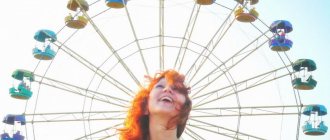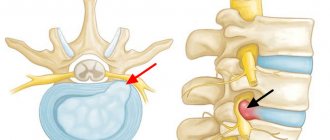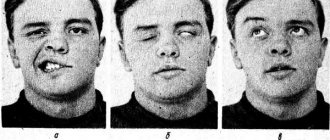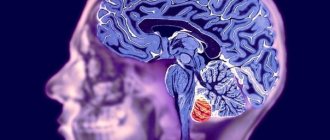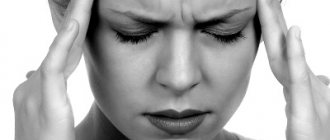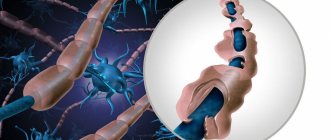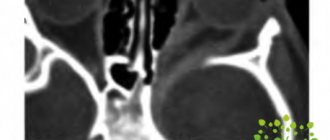Should you worry if you can't sleep? Why is this happening? How can you adjust your lifestyle to ensure healthy sleep? We tell you together with doctors who deal with sleep disorders.
Insomnia refers to various phenomena: difficulty falling asleep, systematic awakenings in the middle of the night and inability to fall asleep again, shallow sleep. This problem plagues about a third of the world's population. Chronic insomnia, lasting more than a week, always leads to a sharp deterioration in the quality of life, decreased performance, and drowsiness during the day.
When is it time to sound the alarm?
“If the process of falling asleep lasts more than 20 minutes, and this situation lasts a week or more, this is a reason to consult a doctor,” says Gleb Lutokhin, a somnologist at the Semeynaya clinic. — If a person tosses and turns for a long time before going to bed, often wakes up during sleep and then cannot fall back to sleep for 5-10 minutes, this is a reason to think about it. Especially if these processes are accompanied by anxiety and obsessive thoughts.”
Insomnia has many adverse effects. The body does not have time to recover, the functioning of almost all systems and organs is disrupted. The nervous system suffers the most; the cardiovascular and endocrine systems, as well as the kidneys, work under stress.
“About 40% of my patients have a sleep disorder,” says GMS Clinic neurologist Sergei Makarov. — In young people, insomnia is a consequence of anxiety disorders or disruption of the daily routine. Due to the coronavirus epidemic, many people work from home until late and then sleep until lunch. And due to overexertion and lack of personal space, insomnia occurs. In older people, sleep disturbances can be caused by diseases of the heart, lungs, other internal organs, or chronic pain.”
So a young girl turned to Doctor Makarov. During the interview, it turned out that in addition to bad habits - smoking and drinking alcohol - she suffered from an incorrect daily routine. At night on weekends, the girl “hanged out” in bars and discos, sleeping off during the day. It is not surprising that the work week was difficult for the patient. The body did not have time to adapt to the daily routine when the weekend came again and history repeated itself.
Drug therapy
Most often, doctors cannot cure VSD. Therefore, the main method of treatment is the elimination of associated symptoms. In advanced cases, not only taking medications is required, but also contacting a psychiatrist. Severe sleep disorders are accompanied by personality destruction and emotional disturbances.
What drugs do doctors most often prescribe? First of all, sleeping pills that have a sedative effect. Drugs that normalize the activity and condition of the cardiovascular system are useful. General strengthening agents increase protective functions.
Severe forms of the disease are treated with tranquilizers. Pain syndrome is relieved by painkillers.
It should be borne in mind that tranquilizers and analgesics have numerous side effects and contraindications. The additional load negatively affects the kidneys and liver. Therefore, it is better to do without such strong drugs and use alternative remedies.
Who's at risk
Statistics of visits to doctors show that middle-aged and elderly people experience insomnia much more often than young people. According to somnologist Gleb Lutokhin, the two main categories of his patients are men and women 60+, as well as women 40-55 years old. There are also many men over the age of 40 who are prevented from falling asleep by sleep apnea.
In the elderly, insomnia is often caused by vascular lesions of the brain and neurodegenerative diseases such as Parkinson's or Alzheimer's disease. Women almost always experience sleep problems at the onset of menopause. In addition, problems with falling asleep and quality of sleep often plague anxious people with increased responsibility, and these are often women. Men go to the doctor when the symptoms are so severe that they interfere with normal work and life.
Among people of various professions, those who work on irregular schedules with alternating day/night shifts have the most problems with sleep: dispatchers, train drivers, airplane pilots. Therefore, the departmental clinic of Russian Railways has its own staff of somnologists. According to the observations of Gleb Lutokhin, lawyers disproportionately often experience insomnia.
Neurologist Sergei Makarov notes that people who are engaged in intellectual work usually sleep poorly. Physical labor is the best cure for insomnia. When a person is physically tired, he falls asleep soundly and sleeps for a long time.
What are the reasons
Typically, insomnia is just an optional symptom of a more serious problem, such as cerebral circulatory problems. Most often, the real reasons lie in neurotic disorders such as depression or anxiety. Isolated, uncomplicated insomnia is extremely rare.
“As a rule, this is only a symptom in the structure of a psychopathological syndrome, which must be identified first,” says psychotherapist Irina Kolchina. “Patients often underestimate the depth of the problem and come for sleeping pills in order to restore sleep in the easiest and fastest way. This is what my recent patient did, a 32-year-old man who complained of three months of insomnia. The anamnesis showed that the sleep problems lasted for more than two years and were caused by a very serious syndrome. The patient did not agree with the diagnosis and stopped treatment, thereby driving the problem deeper.”
However, there are diseases that manifest themselves only as insomnia. For example, narcolepsy, in which a person's wakefulness at night is compensated by attacks of falling asleep during the day. Or fatal familial insomnia - an extremely rare incurable hereditary disease in which the patient dies without being able to sleep.
“In 70% of cases, the causes of sleep disturbances have their origins in psychiatry,” Gleb Lutokhin shares his experience. — Often these are mild disorders of the mental spectrum that do not manifest themselves in everyday life, but affect sleep. There are, of course, gentle people who lose sleep if they are rude at work or stepped on in a store. But more often the causes of insomnia are anxiety-depressive disorder, anxiety-phobic disorder, depression, bipolar affective psychosis or organic mental disorders.”
Thus, a very anxious man told Dr. Lutokhin that he had not slept normally for a month after being fired from work due to the coronavirus situation. The patient had obsessive thoughts - the same ideas and images, which are extremely difficult to get rid of when falling asleep. There was also a high score on the depression scale. In such cases, insomnia cannot be cured without eliminating the mental disorder, and this is the work of a psychiatrist.
Alternative to medications
If the manifestations of VSD are complicated by constant or periodic insomnia, the disturbances can be eliminated by alternative means
Melatonin
Melatonin is secreted by the pineal gland at night and is a hormone. Numerous studies have proven that the substance is a strong antioxidant with anticancer and immunostimulating effects. Melatonin prolongs life. Taking the drug in the evening improves the quality of sleep and stimulates rapid falling asleep. A course of melatonin improves performance, restores vital energy levels through healthy sleep and full recovery of the brain.
Gaba
The natural compound GABA improves blood circulation, memory, eliminates insomnia, and treats nervous disorders. The drug relieves nervous overexcitation, improves memory, cognitive processes, and restores normal sleep. GABA affects the metabolism of the central nervous system, improves blood circulation in tissues and prevents oxygen starvation of nerve cells.
GABA
649 rub.
Glycine
The popular drug is used to reduce psycho-emotional stress, high excitability, and overcome stressful conditions. The product is widely used in the fight against neuroses and the treatment of the consequences of neuroinfections. A course of glycine eliminates sleep disturbances and the consequences of traumatic brain injuries. The drug increases mental performance.
Glycine
329 rub.
Which doctor will bring back sleep?
If a person is seriously concerned about a sleep disorder, he or she should contact a somnologist. He must find the root cause of the problem and, if necessary, refer to another specialist. The main type of diagnosis is polysomnography. This is a comprehensive sleep study that records the characteristics of breathing, heartbeat, and bioelectrical activity of the patient’s brain in a sleepy state. The procedure is usually performed in a clinical sleep laboratory.
Polysomnography reliably detects sleep apnea, in which the patient is suffocating and cannot sleep. The procedure allows you to determine heart rhythm disorder syndrome, in which a person wakes up with a heartbeat that is elevated to 150-160 beats per minute. Then he is sent to a cardiologist, and then usually to a surgeon.
Older people often suffer from disturbances in the perception of sleep, when insomnia itself may not exist. Often the patient claims that he has not slept a minute for many years. When the sleep of such a person is studied in detail in the laboratory, it usually turns out that he sleeps superficially, with frequent awakenings, but sleeps through his 6-7 hours a day.
Insomnia in various types of depression
There are several types of depressive conditions characterized by sleep disturbances:
- Endogenous depression. In this case, falling asleep occurs normally, but sudden awakenings at night occur, and further attempts to fall asleep remain fruitless. When waking up, attacks of anxiety, fear, and hopelessness often occur, preventing you from falling back to sleep. A state of drowsiness may occur, but it does not provide complete rest. In the morning, the patient experiences a bad mood and heaviness in the head.
- Hidden depression (masked). It causes early awakenings, sleep is often interrupted, and the patient feels tired and lacks strength.
- Seasonal depression. The patient often experiences attacks of weakness and drowsiness in the morning and daytime; sleep at night is normal, but does not bring rest.
- Sad depression. Characterized by a feeling of fatigue and loss of energy that occurs towards the end of the day. The patient's sleep becomes sensitive, during which the person cannot fully relax. Usually early awakenings occur, but the person cannot find the strength to get out of bed and continues to lie until the alarm sounds.
Fatigue and lethargy do not go away even after getting up, and can often be accompanied by headaches. During sleep, the patient often sees painful, monotonous dreams of a gloomy nature, usually associated with his problems and defeats.
- Apathetic depression. In this case, the patient's sleep differs in duration - waking up occurs much later than usual, but during the day the person is overcome by drowsiness and a feeling of extreme fatigue. The patient may not get out of bed throughout the day due to loss of strength. Dreams occur rarely, are faded and lack emotionality, but often the patient can lose the boundary between dreams and reality.
- Anxious depression. It is accompanied by the appearance of anxious thoughts, which often interfere with falling asleep. Sleep is mostly intermittent, with a negative emotional connotation, and nightmares are possible.
When is sleep disorder especially dangerous?
After just three completely sleepless nights, a seemingly healthy person may experience delusions, hallucinations, attacks of acute psychosis, and epileptic seizures. Seven days spent without sleep ends in guaranteed death. It has long been established that symptoms of insomnia are independent risk factors for heart disease and stroke.
In some cases, sleep disturbance is not even a bell, but a bell signaling a mortal danger to life. Gleb Lutokhin says:
“A strong young man, 28 years old, complains of snoring and sudden cessation of breathing during sleep. At night, the wife had to push her husband away more than 40 times an hour, restarting the breathing process. This is a case of central apnea - a pathology in which the medulla oblongata stops giving the body the command to inhale. Such situations very often end in the death of the patient. As it turned out, the patient had a congenital organic pathology in which the vertebral artery compresses the respiratory center of the medulla oblongata. We have selected the appropriate ventilation option. For the rest of his life, the patient will have to sleep with a device that will control his breathing and breathe for the owner in those moments when he stops doing it on his own. But the patient sleeps well, does not get tired during the day, and has even lost weight.”
Treatment of insomnia and depression at the Doctor SAN clinic
Before starting treatment for insomnia due to neurosis, the clinic’s doctors conduct a thorough comprehensive examination of the patient. Based on the indications, specialists establish the required type of therapeutic effect, taking into account the characteristics of the patient’s body, the mechanism of development of the disease and the reasons for which insomnia, stress, and depression developed. In some cases, patients are prescribed psychotherapeutic sessions or treatment of insomnia neurosis with hypnosis. In extreme cases, treatment of insomnia due to depression requires the prescription of a number of medications by a specialist.
If damage to the patient’s internal organs is suspected, caused by overwork and lack of quality sleep, the patient is prescribed an additional examination with the involvement of specialized specialists: an endocrinologist, a therapist, a neurologist-epileptologist. Also at the Doctor SAN clinic you can see a somnologist and provide polysomnography services.
When the reason lies in the past
It often happens that the cause of insomnia is an event that happened months or even years before the onset of symptoms. Most often with acute anxiety disorder caused by the death of a loved one. In the first time after loss, insomnia does not occur due to stress and regular adrenaline surges. But when, six months or later, a person relaxes a little, then chronic sleep disorders appear.
Dr. Kolchina says: “A woman over 80 years old encountered the problem of insomnia 3 years after the death of her husband. She tried to regain sleep with the help of alcohol and tranquilizers, although she had never drank before. It was still not possible to get enough sleep, and the patient had problems during the daytime, including impaired motor functions and even falls. In this case, combined drug and psychotherapeutic treatment helped.”
Obese people often complain about the quality of their sleep. They fall asleep easily, but experience breathing problems during sleep due to pulmonary hypoventilation syndrome. Fat tissue puts pressure on the chest, the lungs breathe only due to the diaphragm. As a result, the body receives insufficient oxygen, which aggravates obesity by inhibiting metabolic processes. That's why overweight people often wake up in the middle of the night and don't get enough sleep.
How to quickly fall asleep with VSD and neurosis?
In general, healthy sleep is the merit of a healthy lifestyle, and you won’t be able to just force yourself to fall asleep quickly and efficiently. But you can at least increase your chances of falling asleep quickly by taking the following measures:
- Take care in advance about the comfort of your sleep: earplugs, a ventilated bedroom, absence of noise and unpleasant odors, aromatizing the room with essential oil (using an aroma lamp), avoiding bright light.
- Do not watch TV before bed (unless it acts as a sleeping pill), do not sit at the computer, do not listen to loud music.
- Do not drink coffee or tea 5-6 hours before bedtime.
- Take a warm bath with the addition of sedative herbs or sea salt.
- 30 minutes before bedtime, drink a tincture of valerian roots (1 teaspoon of roots per glass of boiling water).
- Do not eat at night; it is advisable to finish all meals before 6 pm.
- Take a walk before bed or at least stand on the balcony and breathe some fresh air.
If all these methods do not work and you cannot fall asleep, then it is better to start taking some sleeping pills, for example, melatonin or atarax - strictly according to the instructions, without exceeding the dosage. But you cannot get used to sleeping pills and sedative drops, this will only worsen the problem.

